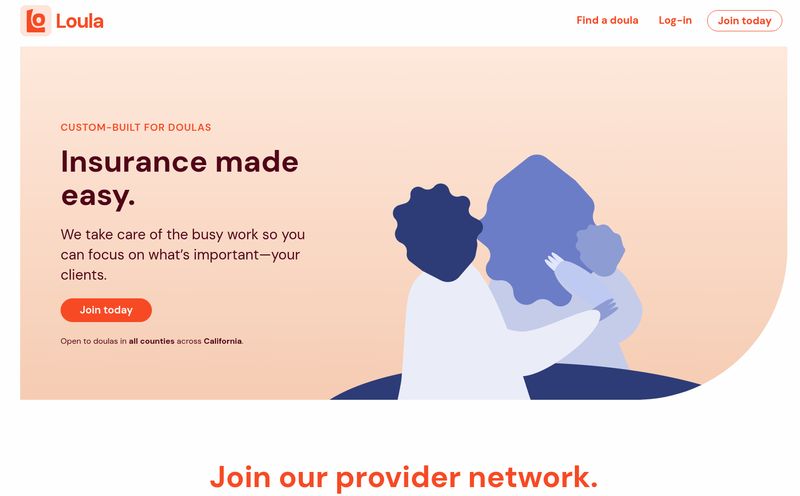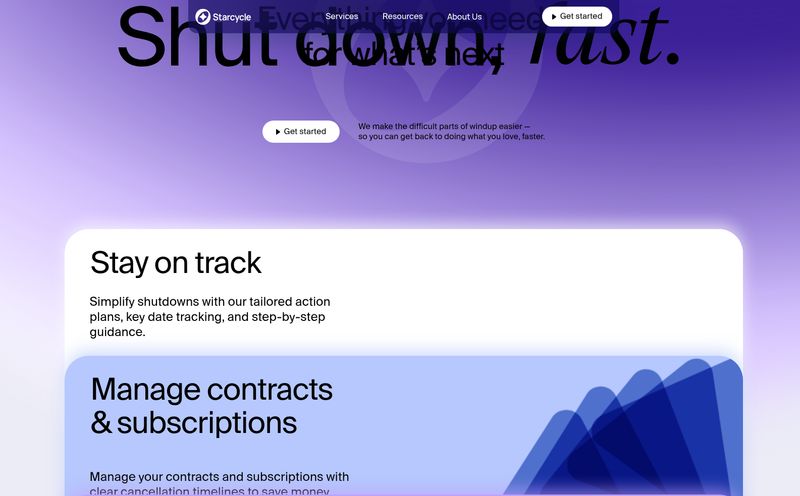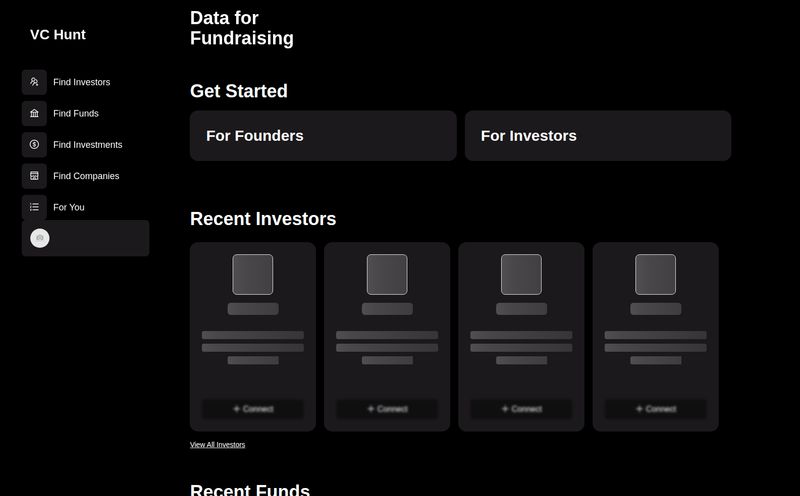Ever get that creepy feeling? You know the one. You’re talking to a friend about, I don’t know, wanting to learn how to bake sourdough, and thirty seconds later your Instagram feed is a veritable sea of artisanal bread-making kits. It’s not a coincidence. It’s the price we pay for the “free” services we use every day. For years, the answer for the privacy-conscious has been simple: use DuckDuckGo.
But let's be honest, for a long time, it felt like a compromise. A noble one, sure, but a compromise nonetheless. The search results weren't always as sharp, and it was just… a search engine. In a world where Google is an entire ecosystem, DuckDuckGo was just a duck-themed door. A very secure door, but just a door.
Well, I’ve been spending a lot of time with DuckDuckGo lately—the browser, the extensions, the whole shebang. And I’ve gotta say, things have changed. It’s not just a door anymore. It’s a full-blown digital privacy fortress, and they just added a very interesting new room to it. So, is it finally time to make the switch? Let's get into it.
First Off, What Is DuckDuckGo in 2024?
If your memory of DuckDuckGo is from five or ten years ago, you need to update your mental software. It has evolved. Think of it less as a single tool and more as a suite of privacy armor. You've got the search engine, which is still the heart of the operation, but now there's also a dedicated browser for desktop and mobile, browser extensions, email protection, and even app tracking protection for Android.
It’s a comprehensive system designed to stop trackers dead in their tracks across your entire online experience. It's the difference between locking your front door and having a full security system with cameras, reinforced windows, and a guard dog that doesn't sell your data. A very good boy.
The Features I Actually Use Every Day
Talking about features is one thing, but actually integrating them into your workflow is another. As someone who lives and breathes SEO and traffic analysis, I’m probably more aware than most of just how much tracking is going on. Here's what's stood out to me.
The Classic Private Search (But Better)
The core promise is unchanged: DuckDuckGo doesn't create a profile on you. When I search for "best running shoes" and you search for "best running shoes," we see the same results. Google, on the other hand, knows I’ve been clicking on links for trail running shoes for weeks, so it’s going to serve me different, hyper-targeted results. Some call this helpful; others call it a "filter bubble." I call it a little bit of both. The raw, unfiltered results from DuckDuckGo are refreshing. It feels like browsing the web with a clean slate every single time.
The Browser That Has Your Back
I’ve switched to the DuckDuckGo browser on my phone as my default, and I’m not looking back. It automatically blocks hidden trackers before they even load, which not only protects my privacy but also seems to make pages load a tad faster. It also automatically handles most of those infuriating "Accept Cookies" pop-ups. You don’t realize how much mental energy those things consume until they’re gone. And the little flame icon—the “Fire Button”—that closes all your tabs and wipes the data with one tap? So satisfying.

Visit DuckDuckGo
Duck.ai: A Private Conversation with an AI
This is the big one. This is the feature that made me sit up and really pay attention. DuckDuckGo recently launched Duck.ai, a free, private AI chat. Here's the kicker: it gives you access to top-tier models like GPT-4o mini and Claude 3 Haiku, but it acts as a private intermediary. All your chats are anonymized, your IP address is hidden, and the conversations are never used to train the AI models.
This is a game-changer. I use AI in my work constantly for brainstorming content ideas or untangling complicated code, but there's always that nagging thought in the back of my head about what's happening with that data. Duck.ai removes that worry. It's like having a confidential meeting with a brilliant consultant instead of shouting your ideas in a crowded town square. A brilliant, brilliant move by the DuckDuckGo team.
Okay, But It Can’t Be Perfect, Right?
Of course not. Nothing is. And in the spirit of a real-human review, let’s talk about the annoyances. I’ve run into a few things that are worth mentioning.
The search results, while unbiased, can sometimes require more work. You have to be more specific with your queries because DuckDuckGo doesn't have years of your personal data to guess what you really mean. If you're looking for a local restaurant, you'll probably want to add your city, whereas Google just... knows. It’s a trade-off: precision for privacy.
And while the browser is clean and fast, it might not be a full replacement for power users deeply embedded in the Chrome or Firefox ecosystems with dozens of specific extensions. It’s simpler, more streamlined. For me, that's a plus, but for others, it could feel limiting. Also, the excellent App Tracking Protection feature is, for now, only available on Android. A bit of a bummer for us on the Apple side of the fence.
The All-Important Question of Cost
So what does this whole privacy fortress cost? Nothing. It's free of charge. Which immediately brings up the next question: how do they make money?
It’s actually pretty straightforward. They use ads, but they’re not the creepy, follow-you-around-the-internet kind. When you search for “car insurance,” you might see an ad for car insurance. That ad is based on the words in your search, not on a profile of who you are, where you’ve been, or what you talked about last night. It's how advertising on the internet used to work, and it’s a business model I can get behind.
An SEO's Take on Optimizing for DuckDuckGo
I can't help but put my SEO hat on. Optimizing for DuckDuckGo is, in a way, a return to basics. Because it doesn't rely heavily on user history and behavior signals, it puts more weight on the fundamentals of good SEO: high-quality content, logical site structure, relevant backlinks, and clear keyword targeting. You can’t really “game” it with personalization hacks.
Is it a huge source of traffic? For most of my clients, Google is still the 800-pound gorilla. But the traffic that does come from DuckDuckGo is often highly valuable. It's a self-selecting group of users who are tech-savvy, privacy-aware, and often less susceptible to aggressive marketing. I also use it as a tool to check a site’s “baseline” rankings without Google’s personalization getting in the way. It's my secret weapon for a pure SERP analysis.
So, Who Is This For?
I think DuckDuckGo is a fantastic fit for a few types of people:
- The Privacy Purist: This is a no-brainer. If you're tired of being the product, this is the ecosystem for you.
- The Everyday User Who's Fed Up: You don't need to be a cybersecurity expert to be creeped out by targeted ads. DuckDuckGo offers a simple, one-click solution.
- The Cautious AI Explorer: If you want to use the power of modern AI without feeding your personal or work data into the machine, Duck.ai is, frankly, the best option available right now.
Who is it not for? Probably someone who is so deeply integrated into Google's world—with a decade of Google Photos, a life organized in Google Calendar, and a reliance on Google Drive—that leaving feels impossible. And that's okay! But for everyone else, its a surprisingly easy switch.
Frequently Asked Questions
Is DuckDuckGo truly anonymous?
It's about as close as you can get for a mainstream tool. They don't log your IP address or user agent with your search queries, and they state your searches are not stored. With Duck.ai, they go a step further by anonymizing your requests to the AI models. It's a commitment to "privacy by design."
Does DuckDuckGo have its own search index like Google?
It’s a hybrid model. DuckDuckGo has its own crawler (DuckDuckBot) that discovers and indexes new content, but it also sources results from over 400 different places, with a large partner being Microsoft Bing. They then add their own layer of privacy and features on top.
Can I really replace Chrome with the DuckDuckGo browser?
For most day-to-day browsing, absolutely. It's fast, secure, and the built-in protections are top-notch. If you rely on a very specific set of Chrome extensions that aren't available, you might struggle, but I'd recommend trying it on your phone first. The experience is fantastic.
Is Duck.ai as smart as using ChatGPT directly?
Since Duck.ai uses models from OpenAI (the makers of ChatGPT) and Anthropic (the makers of Claude), the raw intelligence is the same. You're getting the same powerful engine, but with DuckDuckGo acting as a private chauffeur, ensuring none of your personal info is left behind.
How does DuckDuckGo make money if it's free?
They rely on private, non-tracking ads based on your search keywords. If you search for a product, you might see an ad for that product. They also have affiliate revenue, for example, with Amazon and eBay. It's a transparent model that doesn't involve selling your data.
Wait, isn't DuckDuckGo owned by Google or Microsoft?
This is a common myth. DuckDuckGo is an independent, privately-held company based in the United States. It is not owned by any other tech giant, which is central to its privacy-first mission.
My Final Thoughts
Look, I'm not a privacy absolutist. I still use Google for work, and its mapping tool is hard to beat. But my relationship with the internet has changed. I'm more conscious of the data I'm giving away. Switching my default browser and search to DuckDuckGo felt like a small act of rebellion. It's taking back a little bit of control, one search at a time.
With the addition of Duck.ai, the platform is no longer just a defensive tool; it's a proactive one, allowing us to engage with the future of the web on our own terms. If you've been on the fence, or if you wrote DuckDuckGo off years ago, I think its time to give it another look. You might be surprised at how capable—and freeing—it has become.
Reference and Sources
- DuckDuckGo Official Website
- How DuckDuckGo Makes Money
- Official Announcement for Duck.ai
- Electronic Frontier Foundation on Filter Bubbles



